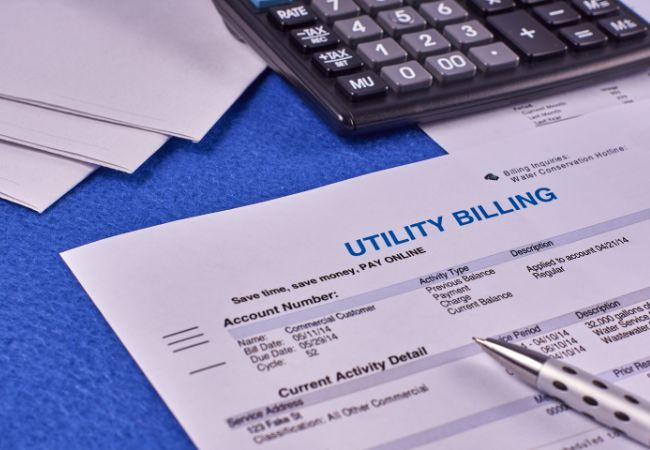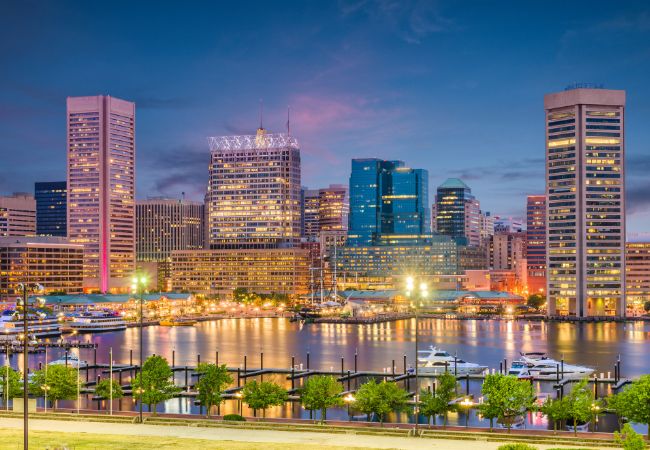When financial pressure builds, unpaid utility bills are often one of the first signs that things are getting out of control. Falling behind on gas, electric, or water bills can lead to service shutoffs and added stress. For residents of Baltimore and Dundalk, understanding how utility bills are treated in Chapter 7 bankruptcy can offer much-needed relief. The good news is that in many cases, utility debts can be discharged through Chapter 7 bankruptcy. But there are a few important details you should know.
Answering the Question: Can Utility Bills Be Included in Chapter 7 Bankruptcy?
Utility Bills and Bankruptcy
Utility bills, like those for electricity, gas, water, sewer, and even some telecommunications services, are considered unsecured debts. This means they are not tied to physical property and, in many cases, can be wiped out in Chapter 7 bankruptcy. However, timing, documentation, and how much you owe all play a role in how these debts are treated.
How Utility Bills Can Lead to Debt and Bankruptcy
It is not uncommon for people to fall behind on utility payments when they are facing other financial challenges like medical debt, job loss, or credit card problems. Unlike a mortgage or car loan, utility services are essential to everyday life. That is why these bills can stack up quickly and become difficult to manage. Over time, unpaid utility bills can be sent to collections, hurt your credit, or result in legal action.
Utility Shutoff: Know Your Rights Before Services Are Disconnected
In Maryland, utility companies must follow specific procedures before shutting off your service. You are entitled to receive advance notice and, in some cases, may qualify for payment assistance or a shutoff delay due to medical or extreme weather conditions. If you are behind on payments, do not wait for the lights to go out—speak with an attorney to explore your options.
How Are Utility Bills Handled in Chapter 7?
When you file for Chapter 7 bankruptcy, your past-due utility bills are generally included in your list of unsecured debts. This means that any bills owed before the date of filing can be discharged, freeing you from the obligation to pay them.
Here is what happens:
- The automatic stay goes into effect the moment you file, stopping any collection activity, including utility shutoffs.
- You must list your utility providers as creditors in your bankruptcy petition.
- The bankruptcy court will notify them, and they cannot disconnect your service while the case is active.
In many cases, your utility service provider may ask for a new deposit to continue or restore service. This is legal, but the amount must be reasonable. As long as you pay current bills after the filing date, you can usually maintain service without interruption.
How Are Utility Bills in Chapter 13 Bankruptcy Handled?
In Chapter 13 bankruptcy, past-due utility bills are included in your repayment plan. You will make regular payments to a bankruptcy trustee, who distributes the money to your creditors over three to five years.
You must continue to pay new monthly utility bills on time while your case is active. Falling behind again could jeopardize your plan and lead to service shutoffs or case dismissal.
Strategies to Avoid Bankruptcy When Facing Utility Debt
If your financial struggles are limited to a few missed utility payments, bankruptcy may not be necessary. Here are a few steps you can take:
- Negotiate a payment plan with the utility company
- Seek assistance through local energy or utility aid programs
- Consolidate other debts to free up money for essential services
- Work with a nonprofit credit counselor to create a personalized budget plan
However, if utility bills are just one piece of a larger financial crisis, bankruptcy may be the most effective way to regain control.
Filing for Bankruptcy
Bankruptcy is a legal process that can eliminate or reduce debts, stop collection calls, and help you reset your finances. Chapter 7 is often the right choice for people with limited income who need a fresh start. Chapter 13 may work better if you have assets to protect or want to repay certain debts over time.
Either way, filing for bankruptcy includes your utility bills and may protect your home from going dark or cold.
Ready for Some Bankruptcy Advice in Baltimore? Contact The Law Offices of Nicholas J Del Pizzo for Help.
If you are behind on your utility bills and unsure how to move forward, The Law Offices of Nicholas J Del Pizzo is here to help. We serve individuals and families throughout Baltimore and Dundalk, Maryland, offering personalized bankruptcy solutions that fit your unique situation.
Let us help you understand your rights, explore your options, and find the best path to financial relief. Contact us today for a free consultation and start building a brighter future—no matter how overdue your bills may be.


